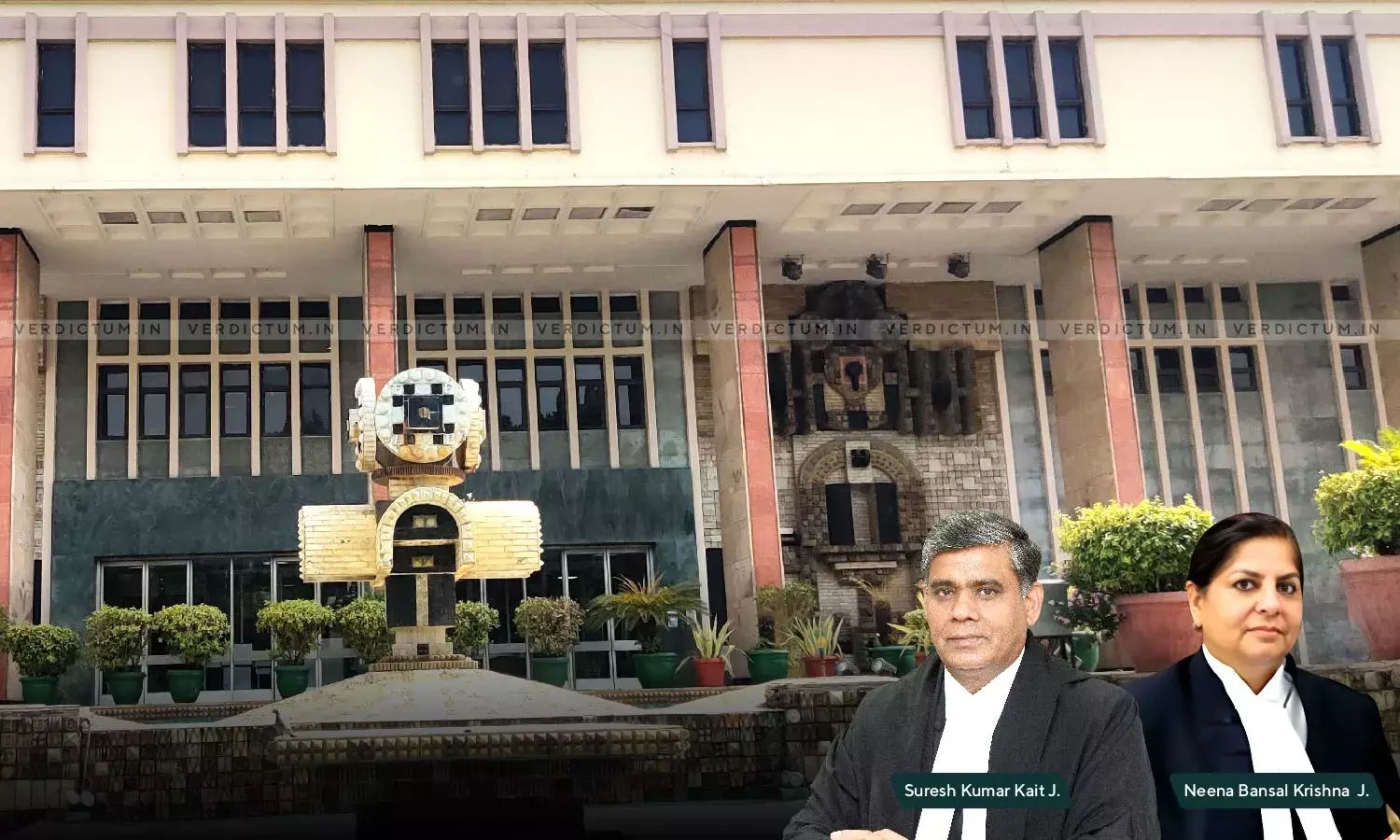Refusal To Observe Karwa Chauth & Constant Rejection Of Wife Is Great Source Of Mental Agony: Delhi HC While Upholding Divorce Decree
The Delhi High Court upheld a divorce granted to a couple who had been living separately since 2011 with no chance of reconciliation. The Court rejected an appeal by the wife against the family court's divorce order. The Court stated that the marriage had been far from ideal, and the wife's behavior had caused significant mental suffering and cruelty to her husband, justifying his request for divorce.
A Division Bench of Justice Suresh Kumar Kait and Justice Neena Bansal Krishna observed that, “It has come in evidence that the appellant refused to participate in the festivities of Karwa Chauth and Diwali. The respondent in his testimony had deposed that she had even refused to keep the fast of Karwa Chauth by asserting that she considered “Ritesh” as her husband and she had been forced into marriage with the respondent by her parents against her wishes. Such disconnect and constant rejection of any relationship or non acknowledgment of the respondent as a husband is again a source of great mental agony for a husband.”
Advocate Jyoti Batra appeared for the Appellant and Advocate Shailender Dahiya appeared for the Respondent.
The husband's allegations included the wife's false accusation of him and his family in a criminal case for cruelty, her refusal to observe the Hindu festival 'Karwa Chauth' by fasting for his well-being because she claimed she loved someone else, lack of respect for him and his family, and even threats of suicide.
The Court noted that the wife's constant rejection and disavowal of her relationship with her husband had caused great mental distress to him. The Court added, “A relationship of marriage rests on mutual trust, respect and companionship and the acts of the appellant, as discussed above, clearly establish and proves that these elements were totally missing from their marriage, essentially on account of the conduct of the appellant.”
The Court cited a Supreme Court precedent, which affirmed that constant threats of suicide amounted to cruelty as they harm the other spouse's peace of mind and mental well-being. In this case, the family court had rightly determined that the wife's behavior constituted immense cruelty.
Furthermore, the Court found that the wife had failed to substantiate her claims of dowry demands or harassment, which the court considered baseless. The Court described the wife's complaints and actions as deliberate attempts to humiliate and insult her husband and his family members.
The Court also noted the wife's reluctance to maintain a conjugal relationship and stated that any such relationship they had was devoid of emotional connection. Ultimately, the Court agreed with the family court's decision that the couple had been living separately since October 2011, with no possibility of reconciliation due to the wife's conduct, which had inflicted significant mental suffering and cruelty on the husband.
The Court added, “Such threats are likely to affect the peace of mind and take a toll on the mental wellbeing of the respondent and thus, the learned Principal Judge had rightly held this behaviour of the appellant to be an act of immense cruelty.”
Consequently, the Court dismissed the appeal, affirming the divorce granted to the husband.
Cause Title: Rekha Drall v. Vikash Drall, [2023:DHC:6792-DB]
Click here to read/download Judgment













